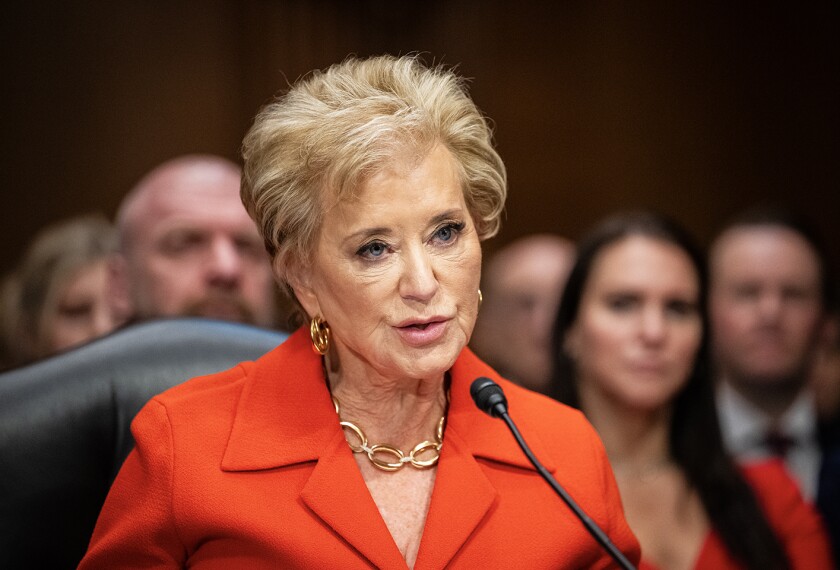In round two of Secretary of Education Margaret Spellings’ efforts to sell Capitol Hill on President Bush’s proposed $56 billion education budget for fiscal 2006, lawmakers last week grilled her on cuts to popular programs.
Republicans and Democrats on the House Appropriations subcommittee that deals with education were particularly concerned with the proposed elimination of one federal college-loan program and of funding for vocational and technical education. Several Republicans said vocational education has been thriving in their states.
“When you eliminate something that has been as successful as tech prep, I think you’re sending the wrong message,” said Rep. Don Sherwood, R-Pa., a member of the Approriations Subcommitee on Health and Human Services, Education, and Related Agencies.
Read the related stories:
But Ms. Spellings said there is a lack of hard data about the effectiveness of some career and technical programs. President Bush instead intends for schools to make their own decisions about whether to keep funding those programs with money from the proposed $1.2 billion High School Intervention Fund, the secretary said.
“The president’s philosophy is to give the resources to the states and to let them chart the course,” she said.
Mr. Bush’s budget proposal for fiscal 2006 includes $56 billion in discretionary money for the Department of Education. That would be a $530 million cut, or 1 percent, from the current budget.
Earlier this month, Secretary Spellings appeared before the Senate Appropriations subcommittee that deals with education and had a similar reception. She sought to fend off criticism from both sides of the political aisle about cuts. (“Budget Panel Receives Spellings With Skepticism,” March 9, 2005.)
At her March 10 appearance before the House appropriations panel, Ms. Spellings emphasized the president’s new focus on high school improvement. She laid out a litany of statistics about the ways high schools are failing to prepare students for higher education or the job market.
“Call it what you will—a challenge, a problem, a crisis,” she said. “But it’s imperative that we give our high school students the tools to succeed in the 21st century.”
A Disciplined Budget?
Secretary Spellings noted that in many education areas, the federal budget has increased significantly since Mr. Bush took office, despite his emphasis this year on “fiscal discipline.”
But Rep. David R. Obey, D-Wis., reminded the secretary that if Congress had followed Mr. Bush’s previous budget proposals for education, there would be billions of dollars less in many programs. Mr. Obey said that although he had heard a lot of discussion about important education issues, “I don’t see that in the numbers.”
“I think this is a socially unjust budget,” he said.




